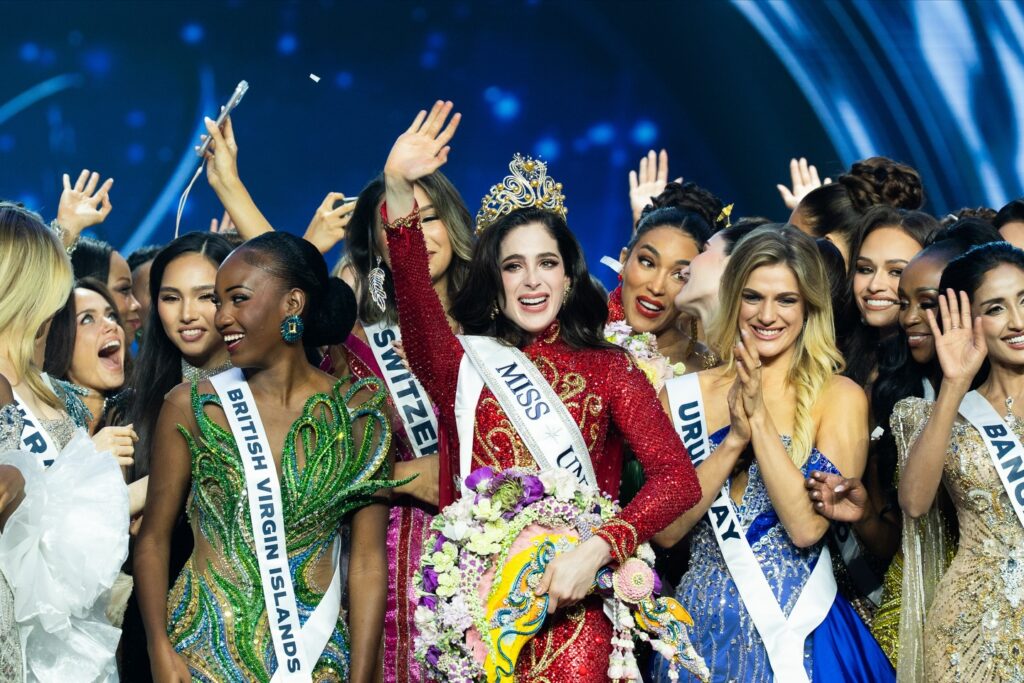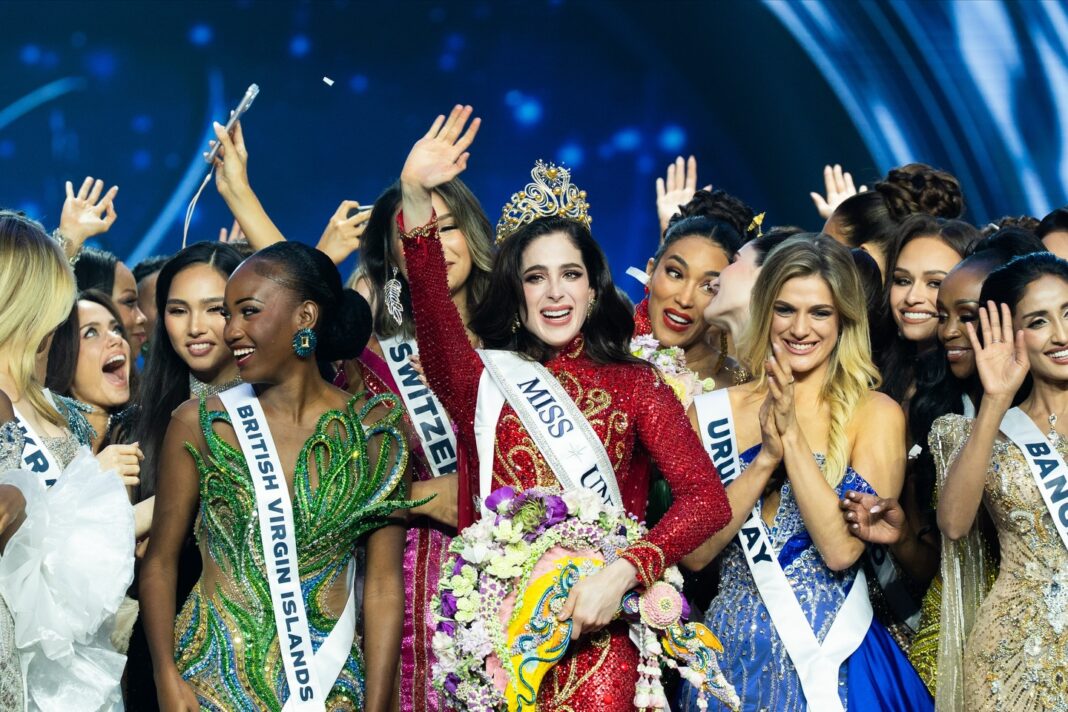Mexico’s Fatima Bosch won the 74th Miss Universe title in Thailand, with Thai-Indian Praveenar Singh as first runner-up. India’s Manika Vishwakarma exited in the Top 12. The edition drew global attention due to controversies surrounding Bosch and broader scandals, reigniting debates over the relevance and credibility of beauty pageants today.

The 74th edition of Miss Universe concluded in Thailand with a night of glamour, competition, and controversy that underscored both the enduring global appeal of the pageant and the growing debate over its relevance in an era increasingly shaped by discussions of representation, purpose, and social impact. Emerging victorious from a field of more than 100 contestants, Mexico’s Fatima Bosch was crowned Miss Universe 2025 on November 21, bringing the title back to her country amid celebrations, headlines, and lingering tensions surrounding this year’s event.
Bosch’s win marks a significant personal milestone and a moment of pride for Mexico, but the path to the crown was far from conventional. Earlier this month, the 26-year-old contestant was at the center of a controversy that drew widespread media attention. While details of the dispute varied across international outlets, the incident ignited discussions about transparency, fairness, and the evolving expectations placed upon global beauty competitions. The controversy cast a shadow over the pageant in the weeks leading up to the finale, prompting scrutiny not just of Bosch’s candidacy but of the Miss Universe brand itself. Yet, in the final moments of the competition, her poised responses, stage presence, and overall performance ultimately secured her the top honor.
One of the most notable outcomes of the event was the strong performance of Thai-Indian contestant Praveenar Singh, who was named first runner-up. Her placement was widely praised by audiences in both Thailand and India, with supporters celebrating her as a symbol of cultural convergence and a rising global voice. Singh’s articulate answers in the interview round and her confident presence throughout the competition earned her admiration from judges and fans alike. Many saw her as one of the most consistent performers of the night, and her second-place finish has already sparked discussions about her future role in advocacy and entertainment.
India’s official representative, Manika Vishwakarma, also made a strong impression, advancing to the Top 12 before being eliminated. For many Indian viewers, her journey was both inspiring and bittersweet. Vishwakarma, who had spoken often about empowerment and access to education, carried herself with grace throughout the competition, representing India on a global stage with pride and sincerity. Her exit at the semifinal stage, though disappointing to supporters, did not overshadow the visibility and momentum she gained through the competition. In India, where beauty pageants have long been a springboard for careers in entertainment, fashion, and social activism, Vishwakarma’s future prospects remain promising.
However, this edition of Miss Universe was not solely defined by its contestants. Instead, it was dominated by a series of scandals that stirred debates across social media, global newsrooms, and within pageant communities. From disputes over eligibility criteria to internal disagreements about the judging process and questions surrounding the commercial direction of the brand, the controversies collectively cast doubt on the integrity and future of the competition. Observers noted that this year seemed to amplify growing dissatisfaction with the way beauty pageants grapple with contemporary values—particularly regarding inclusivity, body image, and social responsibility.
The turbulence surrounding the event has led many cultural critics to revisit a question that resurfaces every few years: What place, if any, do beauty pageants hold in today’s world? For decades, competitions like Miss Universe have positioned themselves as platforms for empowerment, offering contestants opportunities in advocacy, public speaking, and global diplomacy. Yet critics argue that despite attempts at modernization, the core structure still relies on outdated frameworks that prioritize aesthetics and performance over substantive, measurable impact. This year’s controversies sharpened this critique, revealing a deeper tension between tradition and progress.
Supporters, however, counter that the Miss Universe pageant has made meaningful strides in recent years. They point to expanded eligibility rules, increased diversity in contestant representation, and a greater emphasis on social causes. They argue that the platform continues to inspire millions of young women across the world, offering visibility and opportunity that extend far beyond the crowning moment. For many fans, the pageant remains a celebration of culture, confidence, and personal accomplishment—values that continue to resonate regardless of changing global attitudes.
Against this backdrop, Bosch’s coronation takes on a symbolic dimension. To admirers, she represents resilience and elegance under pressure. To critics, her victory is intertwined with broader questions about the institution she now represents. Whether she will use her reign to address these debates—perhaps even reshape them—remains to be seen. The responsibilities that come with the Miss Universe crown today extend well beyond public appearances and charity partnerships; they involve navigating a complex global conversation about gender, identity, and the meaning of empowerment.
As the spotlight shifts from the stage in Thailand to the year ahead, the Miss Universe organization faces the challenge of restoring confidence, strengthening transparency, and aligning its mission more closely with the aspirations of a contemporary global audience. With calls for reform growing louder, the next steps taken by the organization will likely influence not only future editions of the competition but also the broader relevance of beauty pageants in the decades to come.
For now, though, the focus returns to the individuals at the heart of the event. Fatima Bosch begins her journey as the 74th Miss Universe, navigating both celebration and scrutiny. Praveenar Singh returns home as a celebrated first runner-up, her performance hailed as a triumph of cultural representation. Manika Vishwakarma carries forward her experience into a promising future shaped by new opportunities and heightened visibility.
The 74th edition of Miss Universe may have come to an end, but the conversations it sparked—from cultural pride to global controversy—ensure that its impact will reverberate long after the crown has been placed.







